Blog
SAP Business One and IClass One for maintenance areas
We will explore the reality of companies that maintain maintenance areas within their structures, where services of various types and complexities need to be performed. We can cite three examples of companies that experience this scenario:
1. Organizations, where maintenance is their main activity.
2. Manufacturers that provide technical assistance for their products during the warranty period or perform on-demand corrective services inherent to the product or equipment life cycle.
3. Industries that need to perform maintenance on their production-related machinery.
Each section illustrates a scenario that is guaranteed to be encountered in the daily routine of these organizations, and we explore the processes automated by IClass One in conjunction with SAP Business One.
Maintenance plans64 in IClass One, with service records in SAP Business One
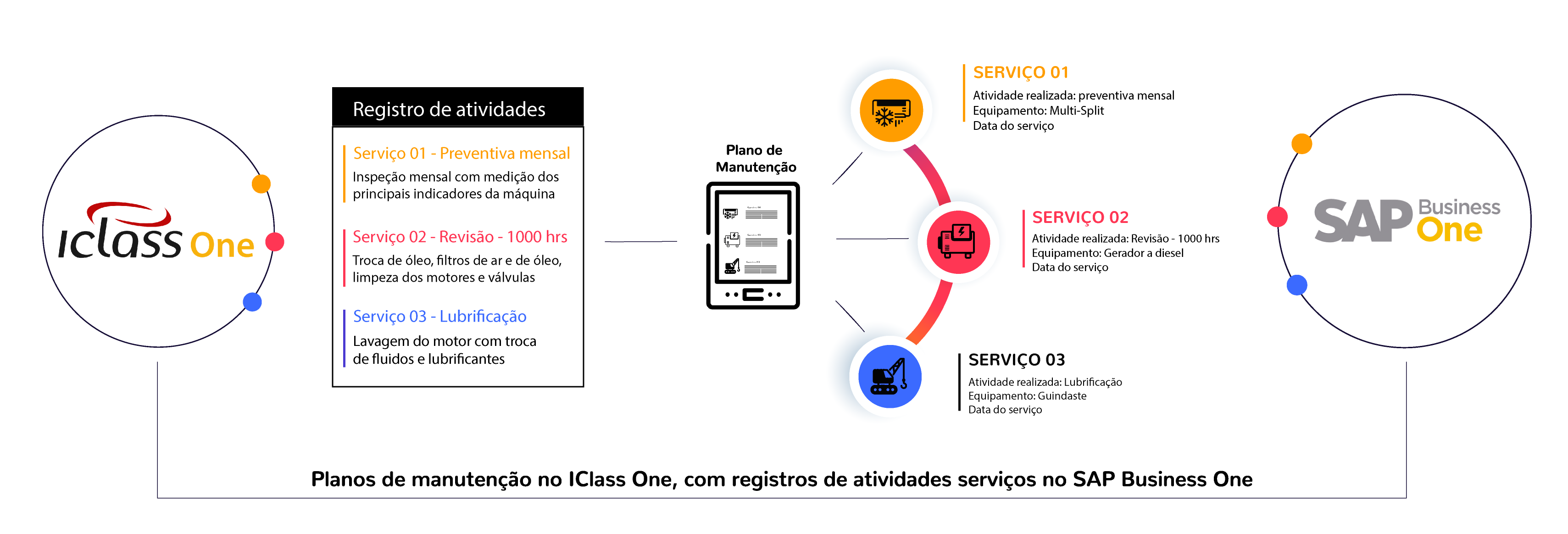
Well-defined maintenance plans, executed according to maintenance engineering planning, are crucial to keeping machines running smoothly and avoiding unscheduled downtime, as measured by the MTBF (mean time between failures) indicator. This discipline applies to scenarios where the company performs maintenance on its own equipment or offers maintenance contracts to the market through its after-sales departments (in the case of product manufacturers). The IClass One maintenance module, integrated with the main SAP Business One modules, allows users to monitor and configure customized plans for each type of equipment and technology, expanding the possibilities for remuneration and efficiency in the maintenance service provided by its technical staff, which often requires a multidisciplinary team. The range of opportunities opened by these functionalities is available to the SAP Business One ecosystem, bringing cutting-edge technology to our customers.
Field inventory in IClass One, with sales orders in SAP Business One
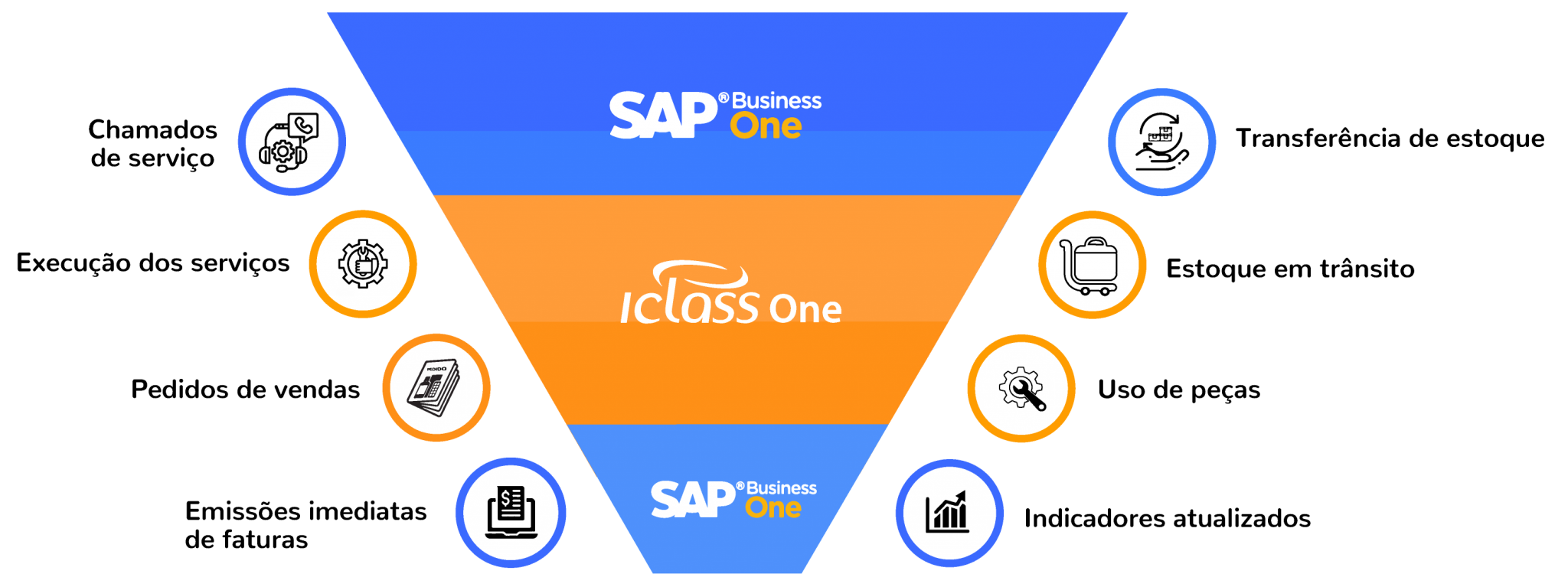
The demand for parts for equipment maintenance is a recognized challenge when it comes to determining inventory levels for after-sales and technical assistance departments. The catalog can be very extensive, making it impractical to purchase a large portion of the list in advance. On the other hand, market contracts increasingly require agility to complete corrective services requested by customers, which have short SLAs, requiring agility to assertively close Service Orders.
And how does this scenario change with the use of SAP Business One in the purchasing department, combined with IClass One in the maintenance and after-sales department?
1. With the use of both integrated solutions, the exchange of information related to purchase orders, service calls, and parts usage or inventory transfers is immediate.
2. Sales orders and invoices for services are automatically issued, allowing for simple and detailed management of parts usage by equipment model, contract, or customer.
3. With the online inventory view of all areas, including field inventory, it is possible to assess the viability of services in a practical way.
Recording technicians' hours and travel in SAP Business One
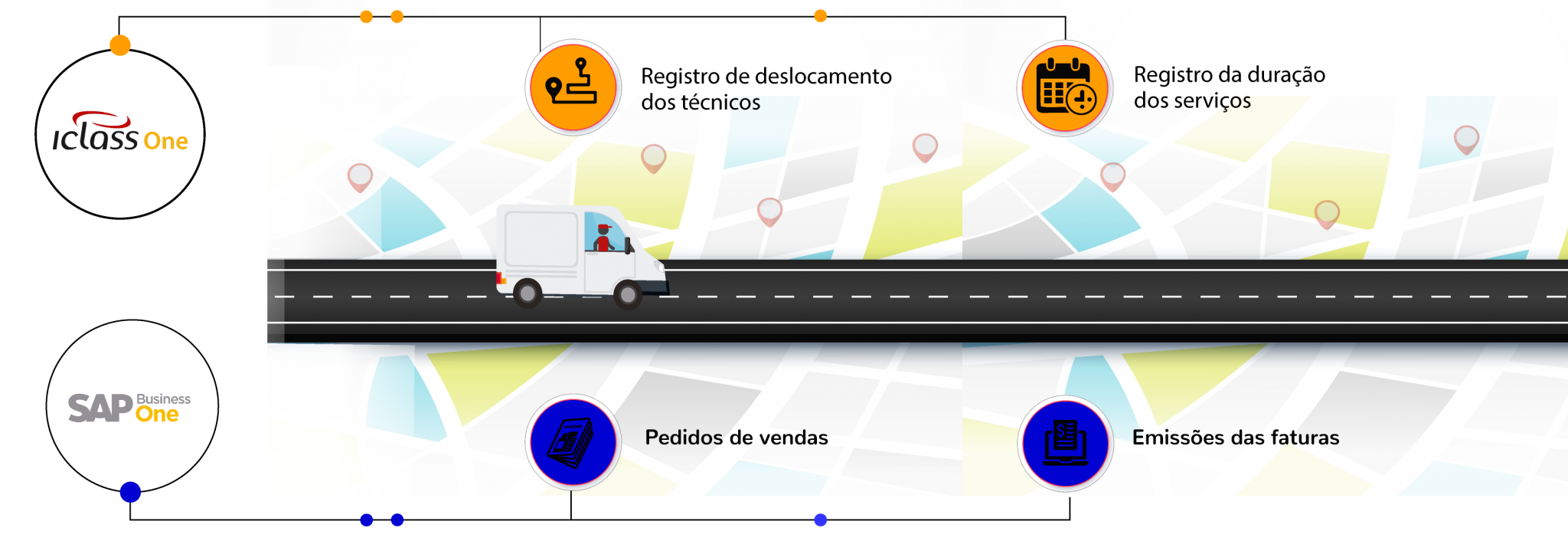
We still see many customer operations using SAP Business One struggling to obtain basic information from external services, necessary for generating invoices or billing. In most maintenance contracts, charges vary depending on several factors, such as service duration, type of service performed, and technician travel. This information must be supplemented with specific quotes that vary according to the customer’s scenario, and organizing this information exchange incurs significant back-office operational costs.
This scenario is radically changed by using SAP Business One in the billing area, combined with IClass One in the after-sales or technical assistance sector:
1. Information collected by field employees is automatically transmitted online to SAP Business One. Service calls are updated with all data related to parts usage.
2. Invoicing is simplified, with digital proof of the situation encountered by the employee, as well as a record of services performed and parts replaced.
3.The employee quickly moves on to the next activity, which can be monitored by the entire company in a clear and manageable manner.
Budgets resulting from preventive maintenance
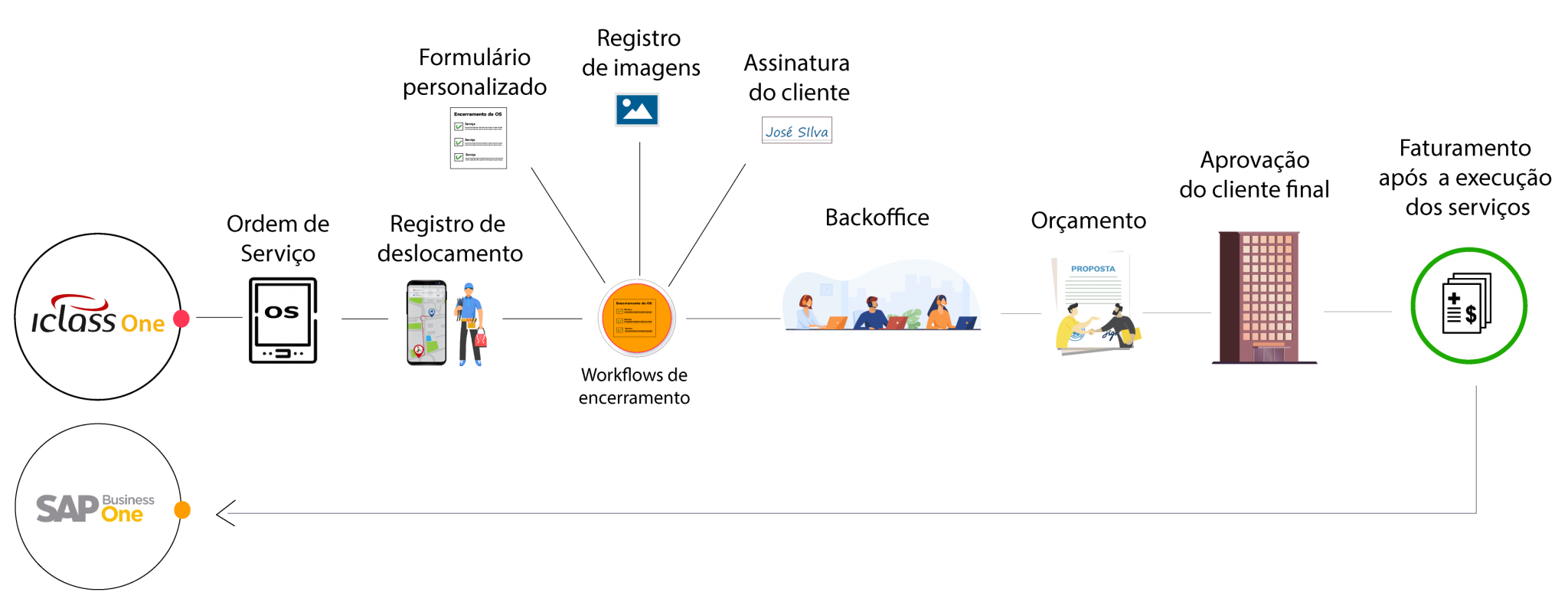
In preventive maintenance contracts that do not cover all types of services or parts replacement, it is common for the equipment maintenance company to identify the need for additional services, such as corrective work or specific interventions on the machines being evaluated. This process requires the preparation of a quote or commercial proposal. This process is time-consuming when departments do not automate their processes with technology. In IClass One, workflows can be defined upon completion of the work order that immediately alert the back office, allowing employees to access the information collected in the field, necessary to prepare their proposal/quote for quick approval by the end customer.
Quotes approved in SAP Business One are converted into sales orders and can be synchronized with IClass One for the service to be performed. The exchange of information between the two systems automates data return in cases where billing occurs after the service is performed. The operational gains are significant, making the return on investment (ROI) of the Add-on almost immediate.
Automated information return for generating contract margin in SAP Business One
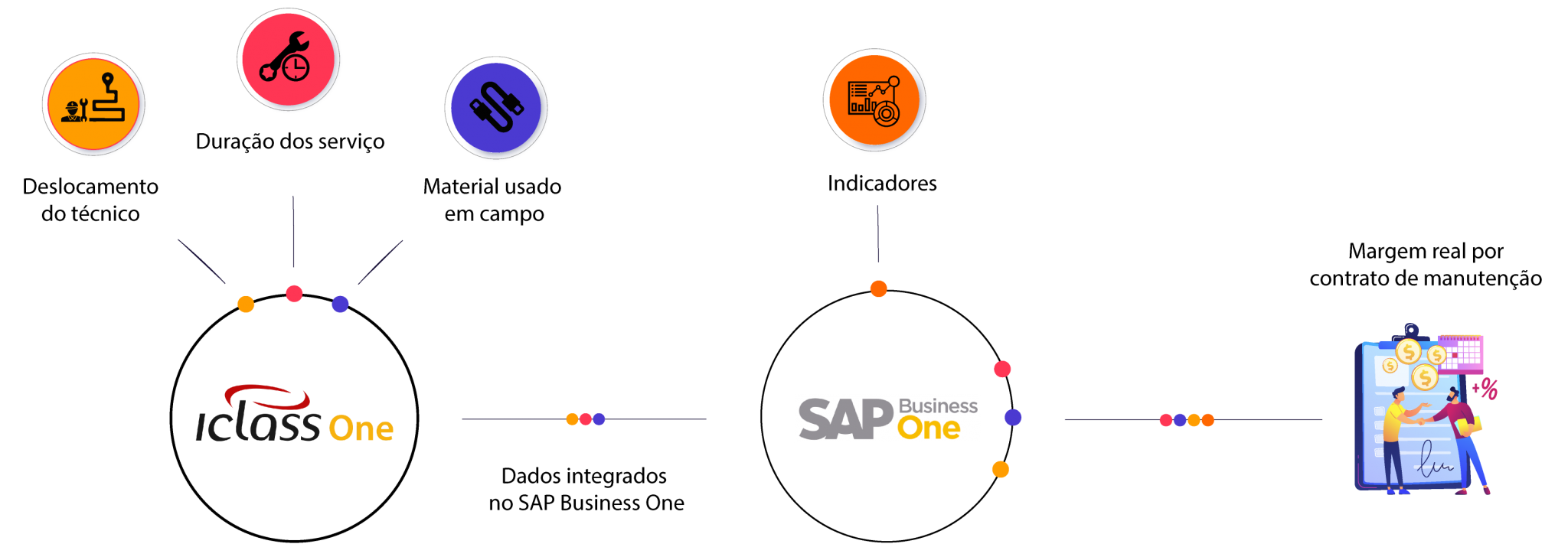
To complete the cycle of benefits obtained from these types of operations, service companies need to obtain the real margin per maintenance contract. SAP Business One provides several mechanisms to display operational indicators for the sectors. However, for certain operations, many of the costs are generated outside the office and therefore need to be allocated to contracts or services performed for each client. We can observe operations where financial consolidations are centralized in a single technical assistance department, thus masking highly profitable contracts by loss-making ones. With the two tools integrated, a higher level of management is available to our customers, representing a competitive advantage in the market for excellence and quality in field service execution.
Estudo de caso

Empresas com 27 anos de experiência, com clientes por todo Brasil
O IClass One é utilizado por diversos segmentos de mercado e indústrias.

O IClass One é utilizado por diversos segmentos de mercado e indústrias.
Click here and understand even more how our Addon can add value in different scenarios
Would you like to learn more about IClass One software?
Fill in the fields below and we’ll get back to you shortly.

